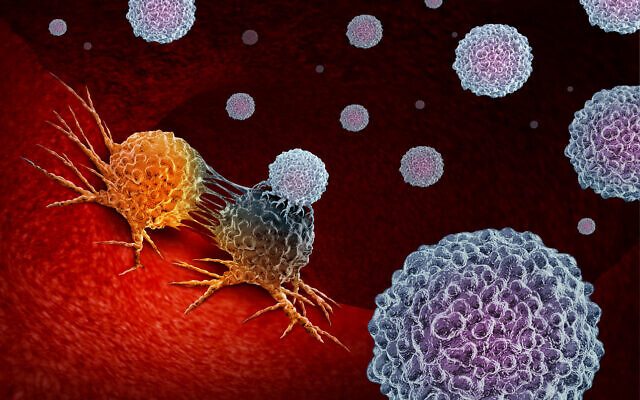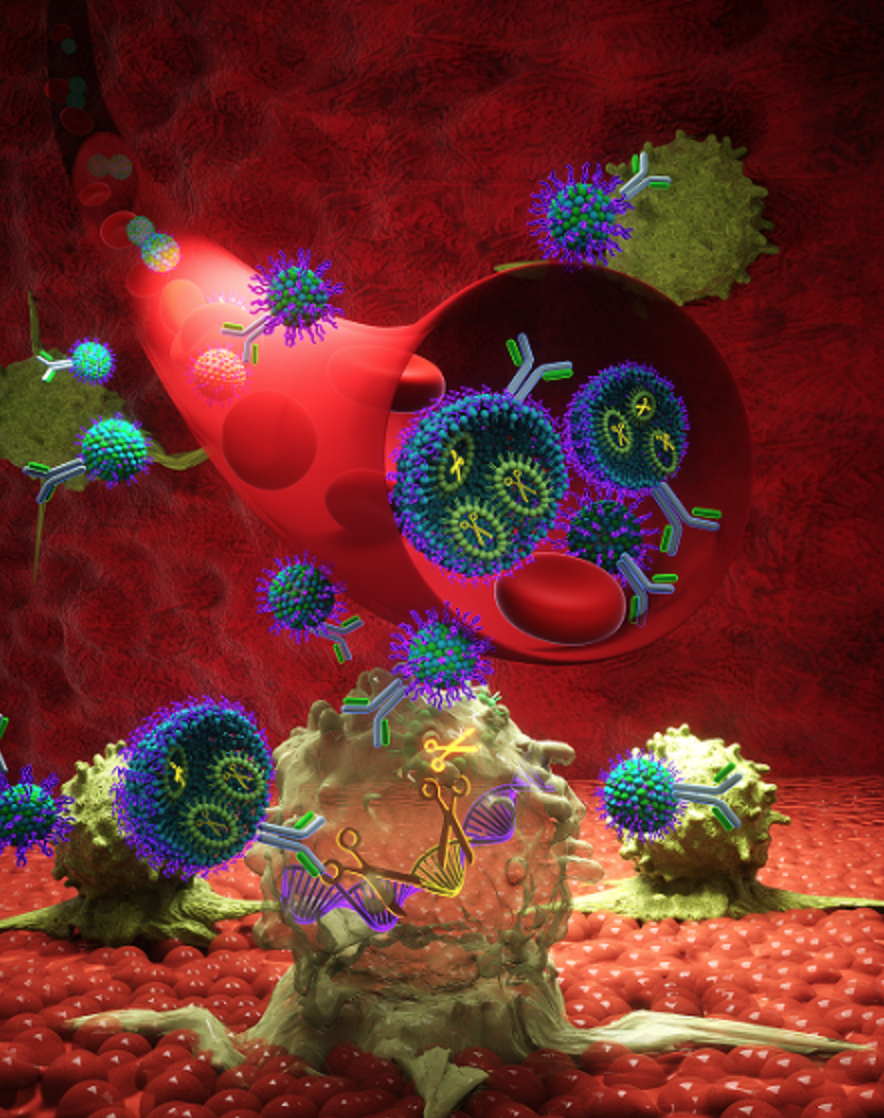
Tel Aviv University team uses ‘microscopic scissors’ to pinpoint and eliminate cancerous cells; results of animal tests just published, trial in humans expected within 2 years.
Israeli scientists say they have destroyed cancerous cells in mice with a method so pinpointed it’s as if “tiny scissors” were being used to target only affected cells, while leaving everything around them intact.
“This is the first study in the world to prove that the CRISPR genome editing system, which works by cutting DNA, can effectively be used to treat cancer in an animal,” said Prof. Dan Peer, a cancer expert from Tel Aviv University, after his peer-reviewed research was published in the Science Advances journal.
“There are no side effects, and we believe that a cancer cell treated in this way will never become active again.” He added: “This technology can extend the life expectancy of cancer patients and we hope, one day, cure the disease.”

Peer called it “a more elegant chemotherapy” and said he dreams that it will replace that treatment, which can take a drastic toll on cancer patients because it is administered to the whole body.
The research uses genome editing technology that is currently used only for rare diseases and only on cells that are removed from the body. It has been adapted to edit — or “delete” — cancer cells.

Tel Aviv University)
The Science Advances journal article reported on tests using the technique on hundreds of mice, and Peer said it could be used on humans within two years. Researchers found that mice with cancer who received the treatment had double the life expectancy of the control group, and their survival rate was 30 percent higher.
Peer said that, adapted to humans, the treatment will be highly personalized, customized to each patient based on a biopsy, and given as either a general injection or an injection directly to the tumor, depending on what is most suitable. “The technology needs to be further developed, but the main thing is we have shown that this can kill cancer cells,” he said.
For the study, Peer and his team chose two of the deadliest cancers: glioblastoma and metastatic ovarian cancer. Glioblastoma is the most aggressive type of brain cancer, with a life expectancy of 15 months after diagnosis and a five-year survival rate of only 3%. They plan to develop the treatment for all types of cancer.
He said that the injection consists of three components: a nanoparticle built from lipids, messenger RNA that “encodes” the “tiny scissor function” for cutting the DNA, and a navigation system that “recognizes” cancerous cells.
“When we first spoke of treatments with messenger RNA twelve years ago, people thought it was science fiction,” said Peer. “I believe that in the near future, we will see many personalized treatments based on genetic messengers, for cancer and various genetic diseases.”
(Times of Israel).